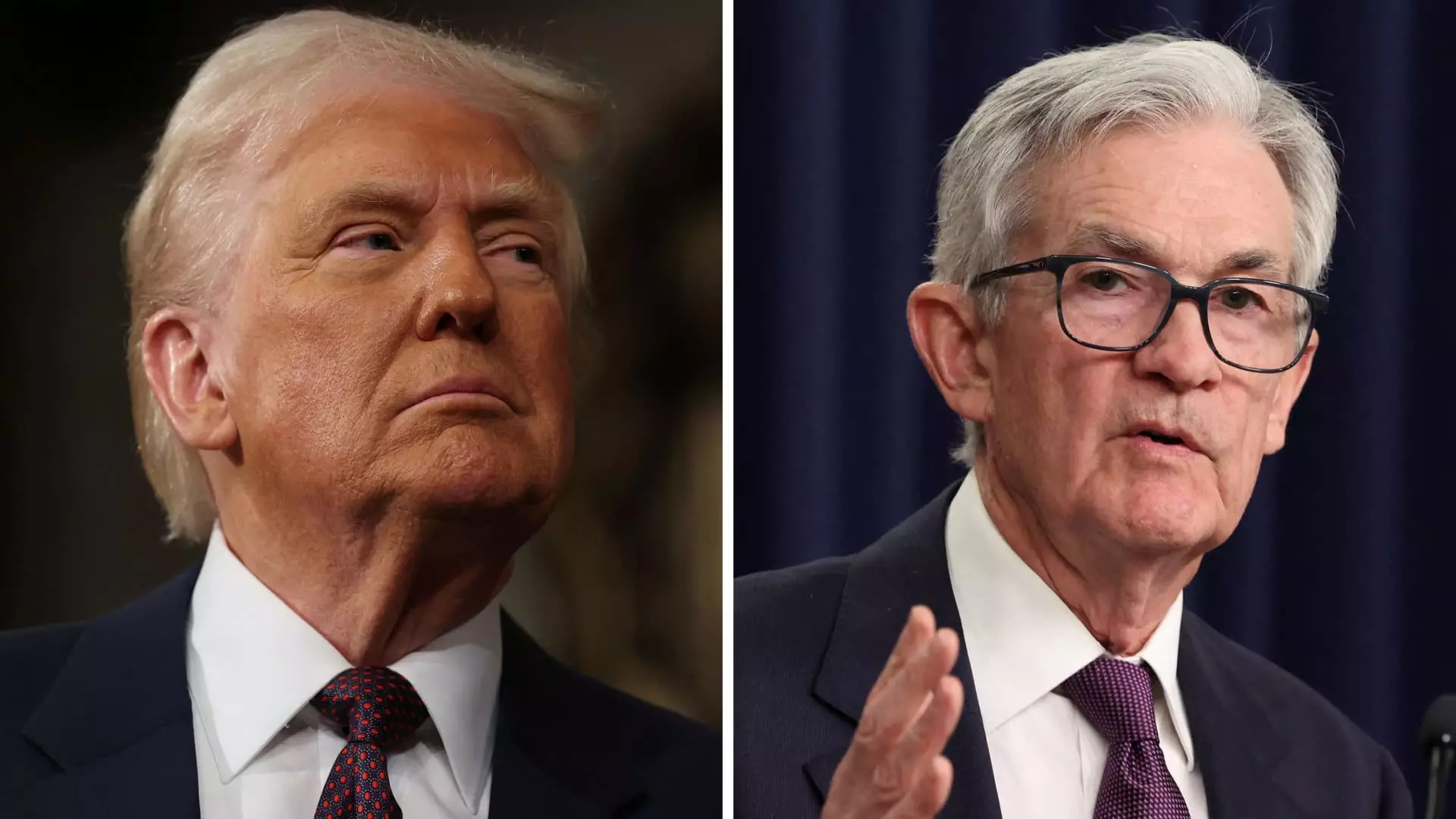In a move that has sent shockwaves through both financial markets and political circles, former President Donald Trump has once again vocalized his disdain for Jerome Powell, the Chair of the Federal Reserve. Trump’s call for lower interest rates and the veiled threat of Powell’s termination raises significant concerns regarding the separation of powers and the independence of the Federal Reserve. It’s not just about economic strategies; it’s about how political influence can distort critical institutions that govern our economy, leading to potentially disastrous long-term consequences.
Trump’s Economic Misunderstandings
Throughout his presidency and beyond, Trump has shown a remarkable misunderstanding of economic fundamentals. By claiming that lower interest rates will automatically bolster growth, he simplifies a deeply complex issue. Economic growth is influenced by a myriad of factors beyond just monetary policy—fiscal policy, consumer confidence, and global economic conditions also play pivotal roles. By pushing for rate cuts without considering these factors, Trump presents a dangerously shortsighted view. His demands appear more about personal grievances with Powell than about a genuine understanding of economic dynamics.
The European Central Bank as a Misguided Comparison
In his latest social media tirade, Trump pointed to the actions of the European Central Bank (ECB), implying that the U.S. should follow suit. However, this comparison is profoundly flawed. The ECB operates in a different economic environment, facing distinct challenges such as sluggish growth and low inflation. In the U.S., inflation is a pressing concern, and hastening rate cuts could exacerbate this issue rather than remedy it. Trump’s argument naively disregards the varied economic landscapes across the Atlantic, showcasing his inability to appreciate the complexities of global finance.
Powell’s Position and the Rule of Law
While Trump’s naked ambition might compel him to wish for Powell’s ousting, the legal framework surrounding the Fed offers a bulwark against such political maneuvering. Powell’s insistence that he cannot be arbitrarily dismissed by the president speaks to the fundamental principles that ensure the Federal Reserve remains insulated from political whims. The potential political fallout from undermining Powell would likely reverberate throughout the economy, further shaking investor confidence and potentially plunging the markets into instability.
Implications for Future Monetary Policy
As Trump continues to push an aggressive agenda that prioritizes personal vendettas over sound economic principles, the danger lies in his influence over public perception. If enough citizens and lawmakers are swayed by his rhetoric, we could be facing a dangerous precedent—a Federal Reserve that bows to political pressure rather than adhering to its mandate of maintaining economic stability. If our monetary policy becomes a playground for populists, we risk undermining years of progress and stability.
Trump’s statements are not merely partisan rhetoric; they echo a deeper threat to economic prudence and political integrity. The ramifications of allowing such behavior to go unchecked could be profound. The lessons from this saga should not be lost on the broader narrative of responsible governance and the necessity for an independent Federal Reserve in safeguarding economic well-being.

